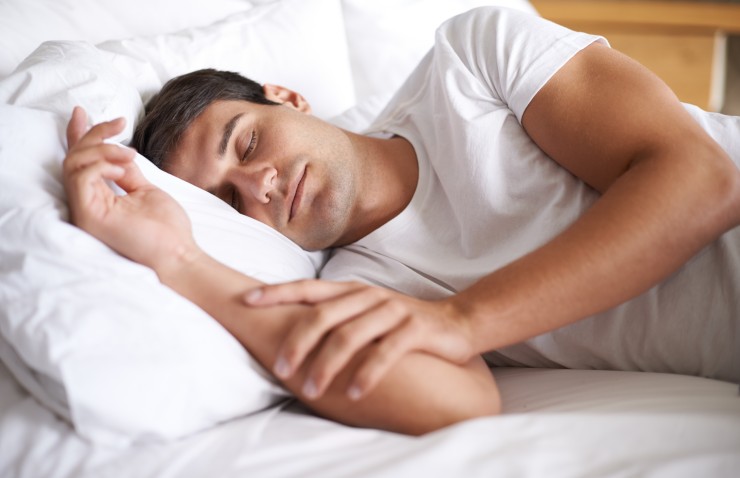You may have heard of the many benefits of meditation, but did you know that virtual meditation can offer those same benefits? A VR meditation app can help you relax and de-stress, which in turn can lead to better sleep. How does virtual reality meditation work? Basically, you use a VR headset to enter a virtual world that is specifically designed for meditation. This world can be anything from a serene beach to a peaceful forest. The key is that the environment is distraction-free, so you can focus on your meditation.
What Is Virtual Reality (VR) Meditation?
Virtual Reality (VR) meditation is the use of VR technology to transport your mind into a peaceful and calming virtual space.
This can be done with the help of a VR headset, or through specially designed apps that work with your
smartphone. Either way, you'll be able to choose from a range of different virtual environments,
each with their own unique benefits for your mind and body.
How Does VR Meditation Work?
VR meditation is a relatively new phenomenon, but it's based on an old idea: virtual reality can be used to create
an immersive experience that helps us escape the real world. In VR meditation, this takes the form of a
simulated environment that's designed to relax and calm the mind.
You might be wondering how this works. Well, the theory is that by immersing yourself in a virtual
environment, you're able to block out distractions and focus on the task at hand. This can be
especially helpful when you're trying to relax or meditate. It's also been shown to be helpful
for people who suffer from anxiety or sleep disorders.
There's still some research that needs to be done in this area, but the early results are promising.
VR meditation seems to be a promising way to unlock better sleep and improve our mental health.
The Science Behind VR Meditation and Sleep
There's a wealth of scientific evidence that supports the use of virtual reality for meditation and
relaxation. One study, published in the journal of Cyber psychology, Behavior, and Social Networking,
found that virtual reality can help people achieve an alpha brain state—a term used to describe a
relaxed and calm mental state.
This is significant because the alpha brain state is associated with better sleep quality. In fact, one
study found that people who achieved an alpha brain state during meditation were able to fall asleep
faster and enjoyed improved sleep quality overall.
There's another reason why VR meditation may be especially beneficial for sleep: the immersive and
distraction-free nature of virtual reality. When you're using a VR meditation app, you're completely
focused on the experience in front of you. This can help to clear your mind and ease into a more
relaxed state.
Benefits of Practicing VR Meditation for Better Sleep
Virtual Reality (VR) meditation is a new and exciting form of meditation where you can use a VR
meditation app to practice it in the comfort of your own home. And if you’re looking for better sleep,
it can certainly be your new go-to!
Studies have shown that using a VR meditation app can provide significant improvements in sleep quality.
VR apps create personalized content designed to relax you, so it’s like having your own personal
yoga instructor or mindfulness guide with you every time you enter the virtual space. It allows you
to focus on your breathing and disconnect from all the external stressors, which results in calming
energy throughout your body and a deeper level of relaxation.
Moreover, because of its immersive nature, the calming and soothing visuals provided by virtual reality
technology makes the experience even more effective. Being surrounded by peaceful environments
while practicing various breathing techniques can help induce higher rates of relaxation than
traditional mediation techniques would on their own.
In this way, VR meditation is an incredibly powerful tool that can help people achieve better
sleep at night—all without ever leaving their homes!
Different Ways to Meditate with Virtual Reality Meditation for Sleep
Now that you understand how virtual reality meditation can help with sleep, let’s take a look at the
different ways of doing it. Depending on your needs, there are various techniques and applications
you can use to get the most out of your meditation sessions.
One approach is to get comfortable and then put on your VR headset. This will allow you to experience a
simulated environment that helps relax your mind and body and calm your racing thoughts so that you can
drift off into a peaceful slumber.
Another option is using a VR meditation app designed specifically for sleep. These apps offer guided
meditations with visuals, music, and binaural beats that help calm your nervous system and reduce
stress. They also have features like journaling, which can be helpful in getting to the root cause
of any sleeplessness issues. For example, you can use Visutate App to help you relax, focus and reduce
your stress levels. It offers guided VR meditations, visualizations and affirmations in a variety
of calming scenes so that you can sleep better, have more clarity and be more creative.
Finally, if you don’t have access to a headset or app, you can still try some basic relaxation techniques
like deep breathing exercises or progressive muscle relaxation to prepare for sleep in the evenings.
In any case, the goal should be to clear your mind of worries and let go of any anxiety before bedtime
so that restful sleep is more likely to come more easily.
When to Avoid Using a VR App for Meditation
When deciding whether to use a VR app for meditation, it’s important to take into account the potential downsides.
For instance, if you have a tendency to suffer from motion sickness or vertigo, you may find that using a
VR app for meditation will aggravate these symptoms and make them worse, so it’s always best to check in
with your doctor before trying one.
In addition, if you have a mental health disorder like anxiety or depression you should take extra
caution when it comes to using a VR app for meditation. Virtual reality can be an intense experience
and could exacerbate existing emotional issues, so it’s always best to consult with your mental health
professional before using virtual reality as part of your meditation practice.
Finally, it’s important to note that none of the content in these apps is meant to replace professional
medical advice. It’s best used in conjunction with other forms of meditation and sleep therapy techniques
as prescribed by your doctor.
Ultimately, if you’re looking to improve your sleep, virtual meditation may be a good solution for you.
The applications we’ve discussed are a great way to get started, and they can help you to learn how
to meditate, to fall asleep more easily, and to get more restful sleep.





